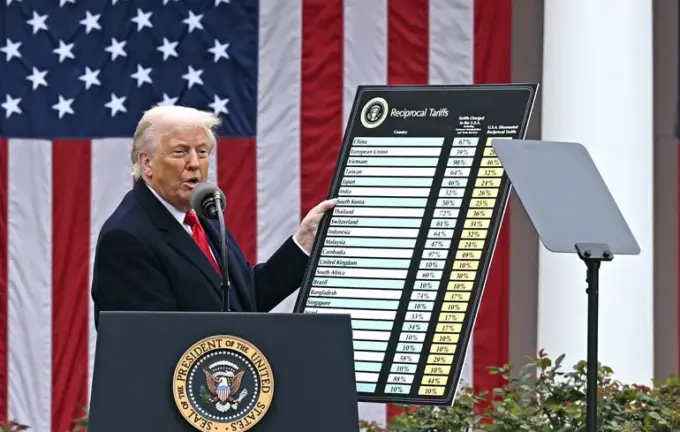US Supreme Court Questions Legality of Trump’s Tariffs in Trade Policy Context

Recent hearings at the United States Supreme Court have brought renewed focus to the legality of tariffs imposed by the Donald Trump administration.
Despite its conservative majority, the court expressed doubts about whether the executive branch had the authority to implement such measures based on the 1977 law — the International Economic Emergency Powers Act (IEEPA).
This law authorizes tariffs during ‘extraordinary and unusual’ threats to the country, but the precise meaning of ‘tariff’ in this context remains unclear, raising questions about the legitimacy of the president’s actions under this legislative framework.
The administration justified its tariffs as tools against economic adversities and external trade challenges, asserting their compliance with legal standards.
The legal dispute has become particularly relevant amidst widespread public skepticism over the impact of these tariffs on prices and economic growth.
NBC News data show that over 60% of Americans believe Trump’s tariff policies have not delivered anticipated results, citing rising consumer prices rather than reductions.
The core legal issue revolves around whether the president had the right to unilaterally impose tariffs under the 1977 law, which is primarily meant to be used in extraordinary situations, and whether such broad delegation of powers aligns with the U.S.
Constitution, which assigns tariff authority to Congress.
The court justices have openly questioned the constitutionality of this delegation, with some pointing out that such broad powers may amount to Congress relinquishing responsibility for trade regulation or even declaring war.
The case draws parallels with previous decisions where the Supreme Court curtailed unilateral actions of President Biden, such as student debt forgiveness, citing the ‘major questions doctrine’ that restricts the president from acting independently on decisions with significant economic impact.
The ruling in this case will carry significant implications for future executive authority over trade and economic measures, affecting not only tariffs but also broader national security policies.
Even if the court upholds the administration’s position, some tariffs could remain in effect as they were implemented under different legal grounds.
The case is being expedited for a quick resolution, possibly within the coming weeks, with major consequences for U.S.
trade policy and presidential powers.

